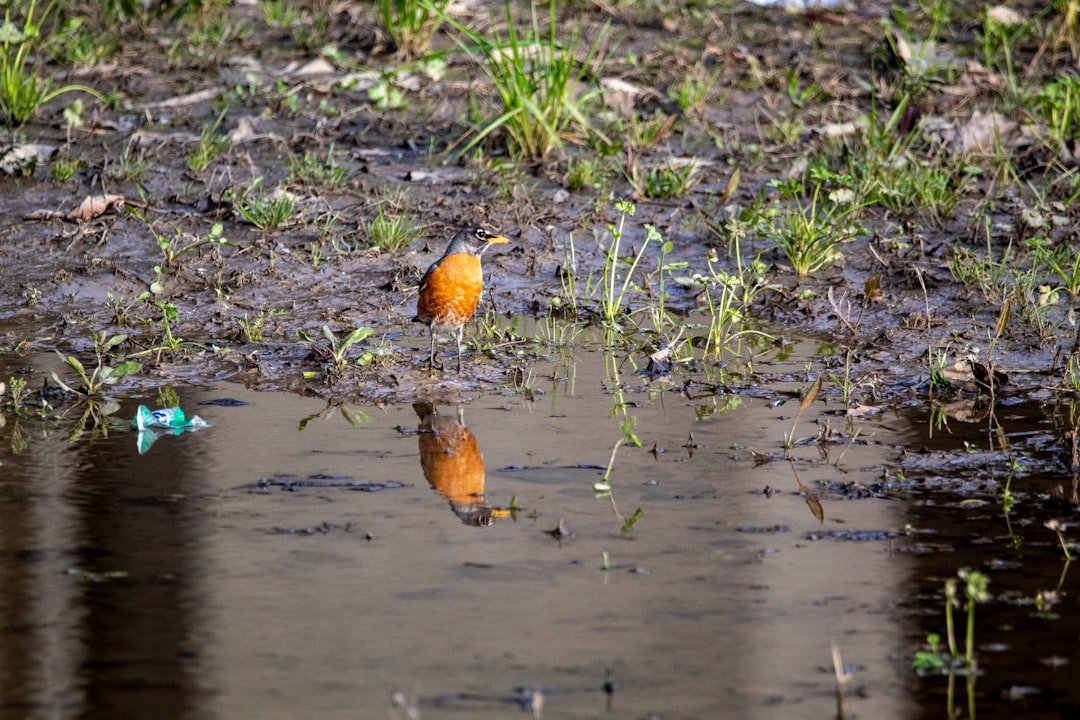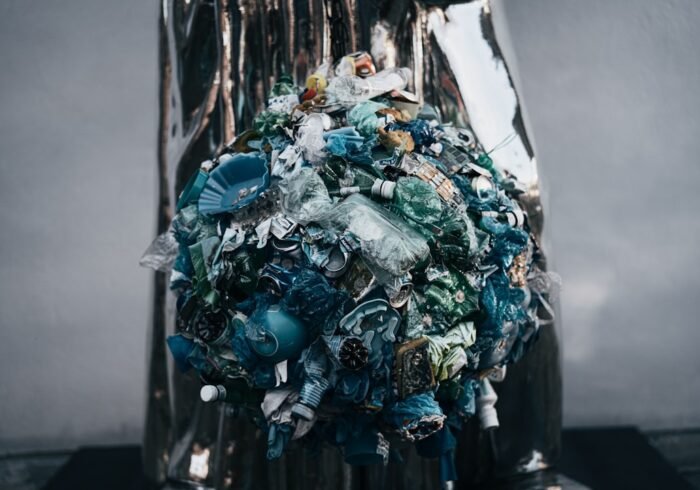The Georgia Water Crisis: A Thorough Examination Georgia, a state renowned for its abundant natural resources & varied ecosystems, is currently facing a serious problem with water contamination. Given that multiple studies have shown that pollutants are progressively contaminating both surface and groundwater sources, the scope of this problem is concerning. Many water bodies throughout the state have been found to contain contaminants like heavy metals, pesticides, and industrial chemicals, which raise questions about the safety of drinking water and the wellbeing of aquatic ecosystems. The issue is not limited to cities; rural communities are also impacted, frequently depending on unregulated private wells that may not undergo stringent testing.
Key Takeaways
- The scope of the crisis in Georgia reveals widespread water contamination, impacting communities across the state.
- Contaminated water poses serious health risks to the public, including the spread of waterborne diseases and long-term health effects.
- Water contamination in Georgia has detrimental effects on the state’s ecosystems, including harm to wildlife and disruption of natural habitats.
- Industrial and agricultural practices play a significant role in water pollution, contributing to the contamination of Georgia’s water sources.
- The government’s current measures to address water contamination in Georgia need to be assessed for their effectiveness in protecting public health and the environment.
Georgia’s water contamination comes from a variety of sources. Water quality deterioration is a result of inadequate waste management techniques, industrial discharges, & agricultural runoff. Specifically, the growth of factory farms and the application of pesticides and fertilizers in agriculture have caused rivers and lakes to become more nutrient-loaded, which has resulted in toxic algal blooms. In addition to endangering aquatic life, these blooms jeopardize the security of supplies of potable water.
It is becoming more and more obvious as the crisis develops that dealing with Georgia’s water contamination calls for a thorough grasp of its extent and the different causes. Public health risks. Beyond environmental damage, Georgia’s water contamination presents serious health risks to the general public. Numerous health problems, ranging from chronic long-term conditions to gastrointestinal disorders, can be brought on by contaminated water.
Children’s developmental delays and adult cancers of various kinds have been related to exposure to heavy metals like lead and arsenic. at-risk vulnerable populations. Disease outbreaks like cholera and hepatitis A can be brought on by harmful microorganisms found in contaminated water, especially in susceptible groups. The effects are most noticeable in marginalized communities.
| Metrics | Data |
|---|---|
| Number of affected households | Over 100,000 |
| Contaminant found in water | Perfluorooctane Sulfonate (PFOS) |
| Health risks | Increased risk of cancer, liver damage, and other health issues |
| Response time from authorities | Slow and inadequate |
| Urgent action needed | Immediate cleanup and provision of safe drinking water |
Due to their lack of access to sanitary facilities and clean drinking water, many low-income neighborhoods are more vulnerable to the health risks associated with contaminated water. A Crisis in Social Justice. Many times, these communities lack the resources necessary to fight for their rights or get help for health problems brought on by contaminated water.
Consequently, Georgia’s public health crisis is a critical social justice issue that requires immediate attention in addition to being an environmental consideration. Water contamination in Georgia has serious and wide-ranging effects on the environment. Pollutants endanger the delicate balance of the state’s varied ecosystems, which include wetlands, rivers, lakes, & coastal regions. For instance, eutrophication, a process that lowers oxygen levels in water bodies and produces “dead zones” where aquatic life cannot survive, can result from nutrient runoff from agricultural fields.
Fish kills and a reduction in biodiversity have been reported as a result of this phenomenon in a number of Georgian lakes and rivers. Also, poisoning aquatic ecosystems can have a domino effect on food webs. The bioaccumulation of pollutants like mercury and PCBs is especially dangerous for species at the top of the food chain, like fish-eating birds & mammals. Reproductive failures and population decreases may result from these toxins building up in an organism’s tissues.
The loss of biodiversity compromises ecosystems’ ability to function as well as the services they offer, like wildlife habitat and clean water filtration. Therefore, Georgia’s water contamination problems are not only an ecological issue; they also pose a threat to the livelihoods of the communities that rely on these natural resources. Georgia’s water pollution is greatly exacerbated by industrial and agricultural activities. Because agriculture is a major part of the state’s economy, fertilizers and pesticides that can contaminate waterways are widely used.
These chemicals are carried into rivers and lakes by runoff from fields during rainstorms, which damages aquatic ecosystems and contributes to nutrient pollution. Also, large amounts of waste produced by factory farms have the potential to contaminate adjacent water sources if improperly managed. Also, direct discharges from industrial operations into rivers and streams contribute to water pollution.
Untreated or insufficiently treated wastewater containing hazardous chemicals is released into the environment by numerous manufacturing facilities. This practice puts ecosystems and public health at major risk in addition to breaking environmental laws. Stricter laws & the promotion of sustainable practices that reduce their negative effects on water quality are becoming more & more important as Georgia’s industries continue to grow. Governmental organizations at the state & federal levels have taken a number of actions to protect Georgia’s water quality in response to the escalating water contamination crisis. Enforcing pollution control laws and keeping an eye on water quality are major responsibilities of the Georgia Department of Natural Resources’ Environmental Protection Division (EPD).
Critics counter that given the scope of the issue, current solutions are frequently insufficient. The absence of thorough testing for contaminants in sources of drinking water is a significant worry. A lot of private wells are still untested and unregulated, even though public water systems must adhere to strict regulations.
Vulnerable populations run the risk of unintentionally being exposed to dangerous substances because of this gap. Also, some industries receive little punishment for infractions of the current regulations, which can lead to inconsistent enforcement. All communities must have access to safe drinking water, and government organizations must fortify their regulatory frameworks in order to effectively combat water contamination. Community activism and advocacy have become strong forces for change in Georgia due to the problems caused by contaminated water. Locals are being organized by grassroots groups to advocate for more robust safeguards & to increase public awareness of the risks associated with contaminated water.
These organizations frequently concentrate on teaching local communities about their rights to clean water & the significance of holding polluters responsible. At the local & state levels, community-led initiatives have also played a significant role in promoting policy changes. To get government representatives to take action, activists have planned town hall meetings, protests, and campaigns. These advocates are promoting collective action and a sense of solidarity among impacted communities by having their voices heard on social media and other platforms. In order to address environmental issues and guarantee that underrepresented voices are heard during decision-making processes, their efforts demonstrate the vital role that community engagement plays.
It is impossible to overestimate how urgent it is to address Georgia’s water contamination. To reduce the threats that contaminated water sources pose to ecosystems & public health, immediate action is required. In order to detect pollutants and guarantee safe levels for consumption, this involves putting in place thorough testing programs for both public and private drinking water supplies.
Improvements to infrastructure are also desperately needed in order to improve wastewater treatment procedures & lessen runoff from agricultural areas. Public awareness initiatives are also crucial for informing locals about the possible risks posed by tainted water & encouraging them to take appropriate action. A culture of environmental stewardship can help communities unite in support of laws that give all Georgians access to clean water. Acting now is essential because if nothing is done quickly, the effects of water contamination will worsen and endanger both environmental integrity and human health.
A multifaceted strategy that tackles both immediate threats & underlying causes is needed to effectively combat water contamination in Georgia over the long run. Promoting sustainable agricultural methods that use fewer chemicals and less runoff into rivers is one important tactic. This can entail establishing buffer zones alongside streams and rivers, using cover crops, and embracing integrated pest management strategies. Also, strengthening regulatory frameworks is essential to making businesses answerable for their effects on water quality.
Significant change in industrial sectors can be sparked by stricter enforcement of current laws combined with rewards for businesses that implement eco-friendly practices. Also, making investments in green infrastructure, such as wetlands, rain gardens, and permeable pavements, can enhance ecosystem health overall and aid in the efficient management of stormwater runoff. Lastly, developing cooperation between government offices, neighborhood associations, companies, and citizens will be crucial to developing an all-encompassing plan to stop future water contamination.
Together, stakeholders can create creative solutions that prioritize access to clean water for all Georgians while preserving the state’s priceless natural resources for future generations. In summary, Georgia’s water contamination crisis necessitates immediate action on several fronts. To guarantee a safe & healthy future for all citizens, public health protection, environmental preservation, community involvement, regulatory reform, and sustainable practices must all be given top priority.



